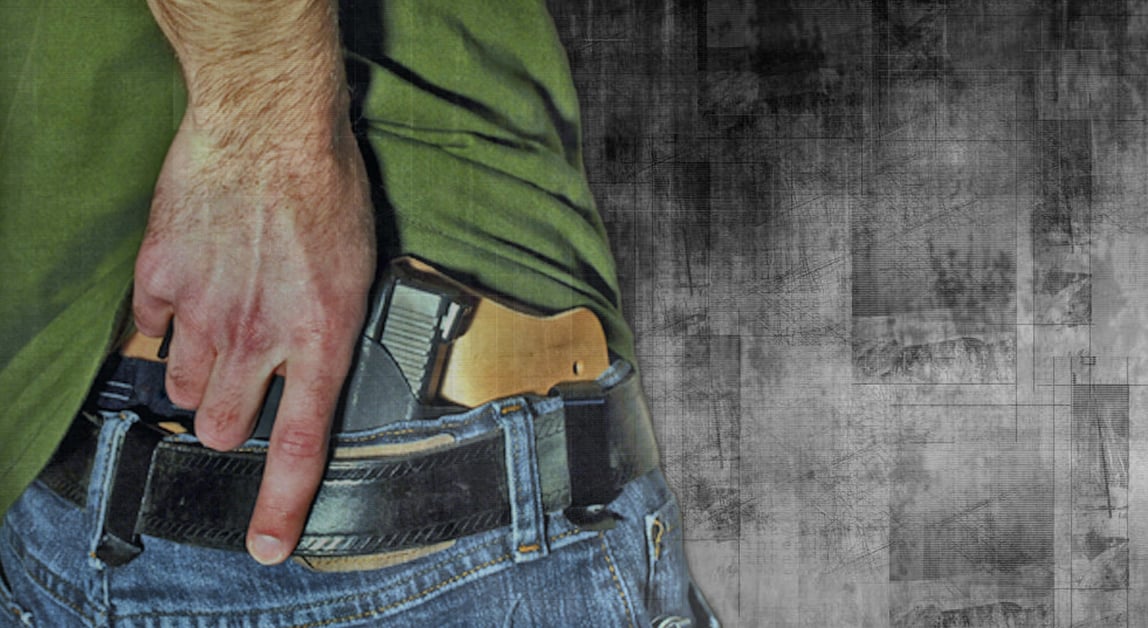Am I willing to use my firearm to defend myself and others?
A big part of being a concealed carrier is knowing that it comes with a heavy responsibility. It’s not open carry for a reason – nobody should know you have a firearm on you. That means if and when such an occasion comes where you are called upon to use it – will you?
Part of this step comes back to training. The concealed carrier who diligently trains in the use of his or her firearm will be able to use it more effectively. This is especially true in the event it’s more than just you and an attacker.
Case In Point
In April, an armed attacker opened fire indiscriminately in the streets of Chicago. An Uber driver used his CCW pistol to critically wound the gunman before anyone else could get hurt.
As a concealed carrier, you will no longer have the option of being a bystander should violence erupt. Is that something you can live with?
Am I willing to commit the time to become a competent carrier?
If concealed carry is going to become part of your lifestyle, so will a working knowledge of applicable federal, state, county, and municipal laws governing it. State laws are changing every day.
Case In Point
Just recently, the California Senate received SB 707 – which effectively removes a concealed carrier’s right to carry onto university or campus grounds. While this bill is effectively in the Suspensions file waiting to be seen, it could change how Californians go to school.
It’s events like these that can really alter the legality of where you can and cannot go with a concealed carry firearm.
More important than just having a working knowledge of the law, you also need to know how the law works if you have to use your concealed carry firearm. Most try to ensure their actions fall within the domain of the Castle Doctrine – if such a doctrine indeed exists in their state.
Am I willing to assist others and be assisted with training?
The term ‘guru’ gets tossed around a lot when discussing people who are really good at something. It’s not important to be a guru or a super combat stud – you just need to be safe. And in doing so, other concealed carriers may from time to time bring up techniques or training suggestions. As, hopefully, will you to others.
A big part about being a concealed carrier is also being a part of a community that inherently looks to make their world a safer place. If we have experience that others can learn from – why not share it? And more importantly, if someone knows something you don’t – why not learn?
Where are some good places to learn more about CCW techniques?
- Firearm Training and Instruction
For many states, some form of mandatory training is required prior to receiving a concealed carry permit. Those states which are either constitutional carry (no permit required) or just have no classroom requirement, there are still plenty of places to receive formal firearm training and instruction.
When looking for a firearm instructor or class, be sure to ask if they have a live-fire portion that accompanies class. While a lot of good theory is learned in the classroom, it’s going out on the range that brings it fully to practice.
- Gun Range
This is traditionally where we assume most firearm experience is garnered. But it is not simply the firing of a gun at a target that produces a good marksman. It’s the strict adherence to the four principles of firearm safety and the six basics of marksmanship.
- Law Enforcement or Military Service
Both serving in any branch of the military or law enforcement will bring you into the same proximity of guns. But not every service member or police officer explicitly handles them every day. LEO and military settings both push firearm discipline and situational awareness. They also lend great opportunities to learn more about firearms and especially firearm maintenance.
- Dry Fire Exercises
This is one of the most understated ways to learn how to be comfortable drawing and firing your weapon. It can be done at the convenience of home and can even help you understand how cant and angle can figure into draw for your concealed carry holster.
Are there any questions you asked yourself before you decided to conceal carry? Tell us about it in the comments section below.











![[VIDEO] 10th Anniversary Taurus Judge. What A Beauty!](https://imagedelivery.net/sbm_lYeJbALkepJgtmRD5w/concealednation.org/2016/09/10th-Anniversary-Judge-THUMB-2-.jpg/w=728,h=381)


![[VIDEO] Snoop Dogg Is #Unloading His 401k Gun Investments, And He Wants You To Do The Same](https://imagedelivery.net/sbm_lYeJbALkepJgtmRD5w/concealednation.org/2015/03/ScreenHunter_310-Mar.-11-11.43.jpg/w=728,h=381)